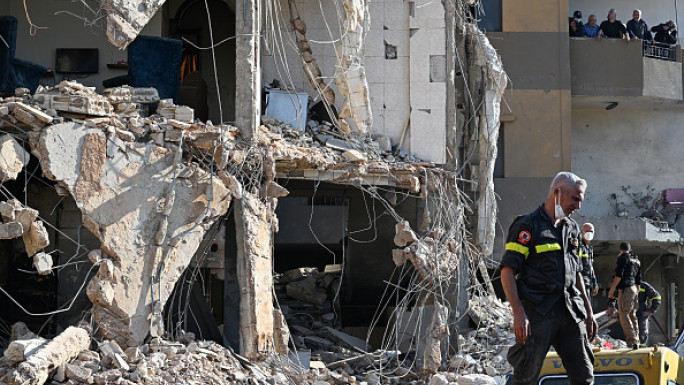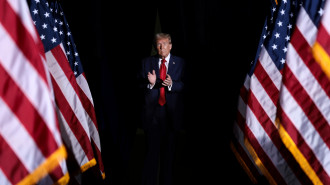Early moves in a Saudi chess match
The death of Saudi King Abdullah and the accession of Crown Prince Salman to the throne has triggered debate and speculation in the media about what happens next: that’s the media outside Saudi Arabia. Inside the kingdom, the message is a simple one: the transition from Abdullah to Salman has been smooth, the wisdom of the Saud family is unimpeachable and the stability of the country remains rock solid.
But like a well-played chess game, beneath the calm façade, the ruling family and its thousands of members are
| The contenders are playing for time but is it a case of Nero fiddling while Rome burns? |
watching the early moves of the new king and each other very closely. So what are those moves and who are the significant players?
Salman wasted no time in appointing Miqrin bin Abdelaziz, who previously held the post of deputy crown prince as the new crown prince. And although it could be assumed that, given the precarious health of the 78-year-old monarch, Miqrin would succeed to the throne, this is by no means as straightforward as it would first appear.
At 69, Miqrin is the youngest surviving son of the founder of Saudi Arabia, Abdulaziz Ibn Saud. But his mother was a concubine or slave girl of Yemeni origin. That puts him at a disadvantage in a family where blood lines are critically important. So because of who his mother was, Miqrin is said to harbour no illusions about becoming ruler, and is instead content to be seen as a safe pair of hands.
Lost son
The most powerful of the bloodlines is the so-called Sudairi seven, the sons of Ibn Saud and Hessa bint Ahmed al-Sudairi. There are four surviving brothers and one of them is the new king.
Of the others, the only one with a credible claim to the throne is Ahmed bin Abdelaziz. He is 75 and the youngest of the Sudairi seven. But since his sacking as Minister of the Interior in 2012, a post he only held for a few months, Ahmed’s star has waned though a source close to senior conservative members of the family told al-Araby al-Jadeed that his ambition remains as keen as it ever was.
“Ahmed is very healthy, he doesn’t drink or womanize and he is the most religiously observant (of senior family members) and because of that he has support within the royal court and with the tribes,” the source said.
But for now Ahmed is on the outside looking in.
Perhaps the most significant move by Salman within hours of his half-brother’s death was the elevation of his own favoured son Mohammad bin Salman to two powerful positions, the first as defence minister and the second as head of the royal court, the latter post effectively making Mohammad the gatekeeper to his father the king.
Indeed given the frailty of Salman - he is widely reported to be suffering from dementia - the role that Mohammad had previously played as the head of Salman’s court (where he was almost always seen at his father’s side) is significant. Questions have already been raised about the extent to which the king is being guided by his son and whether, indeed, Salman is capable of making independent decisions.
At 34, Mohammad bin Salman is the youngest of the contenders. He has been described as blunt, reckless and extremely ambitious.
“He likes power but he likes money more,” the source said, adding that as minister of defence he was well placed to benefit from lucrative arms deals with foreign suppliers.
A deft touch
And if Mohammad is indeed the decision maker, he has already shown a deft touch, with the appointment of a potential rival to the position of deputy crown prince. And that prince is none other than Mohammad bin Nayef, the interior minister and the head of arguably the most powerful ministry in the country.
Mohammad bin Nayef is 55 and well respected by western allies for his at times ruthless campaign against Islamist extremists. In 2009, he narrowly escaped death at the hands of al-Qaeda in the Arabian Peninsula (AQAP) when a suicide bomber claiming to have renounced terrorism blew himself up, slightly injuring the prince.
Getting Mohammad bin Nayef onside checks the ambition of another contender, Miteb bin Abdullah, the favourite son of the dead king. As head of the National Guard, Miteb is not to be taken lightly. But like his uncle, Ahmed bin Abdelaziz, he finds himself on the outside looking in. This was not, according to the source, the way it was supposed to work.
“Mohammad bin Nayef fooled Miteb by pretending to support him but once Abdullah died, he shifted his support to Mohammad bin Salman.”
The source described the two Mohammads as “the people running the country. Everyone in the family knows that the king is incapable of making decisions but they have all agreed to deny it.”
That’s because, the source says, if the family acknowledged Salman’s illness the king would have to be removed and no one wants that, at least not right now. The contenders are playing for time but is it a case of Nero fiddling while Rome burns?
The ruling family faces both major domestic and international challenges. At home, unemployment among youth is far above the official figure of 5.5 percent and among young women is running at 30 percent. More and more Saudis are slipping into poverty.
Challenges at home and abroad
A huge youth bulge – 51 percent of the population is below the age of 25 – is taking to social media and demanding more than their parents ever dared to. And, though the Saudis have enormous cash reserves, the rapid decline in the price of oil, a decline the Saudi ruling family has orchestrated, will have serious repercussions as it strives to meet the social contract the family holds with its subjects. Stripped to its essentials, the contract provides subsidized food, energy, housing, free health and education in return for submission.
Externally, the kingdom is facing unprecedented threats. To the south, Yemen is collapsing into chaos with the rebel Houthi in the ascendancy and AQAP well placed to take advantage of a rapidly deteriorating situation. AQAP came very close to killing Mohammad bin Nayef five years ago and there is good reason to believe that AQAP is a greater danger to the Sauds now than ever before.
To the north, the Islamic State (IS, formerly ISIS) has already very publically denounced the family as corrupt and unworthy guardians of Islam’s two holiest shrines Mecca and Medina. And while Saudi Arabia are part of the allied bombing campaign that has halted IS momentum, the Saud family is well aware of both the threat that returning jihadists pose and the internal challenge to their authority so manifest in the IS ideology.
Saad al-Faqih is a religiously conservative opponent of the ruling family. He has lived in exile in London for the past twenty years. He says the Saud family can ill afford a falling out.
“They remain a symbol of national unity but their religious legitimacy has faded. The social contract is not working. If they behave in a divisive fashion the aura around them will collapse. What holds them together is the fear of a feud that went public.”
For that reason, and perhaps for no other, Mohammad bin Nayef and Mohammad bin Salman have reached a détente. For the time being, each contender has what he wants.
But that still leaves two players feeling aggrieved: Ahmed, the last of the Sudairi seven with a claim to the throne, and Miteb, the frustrated son of the old king.
On the surface it will appear to be business as usual. The kingdom’s antipathy toward the Muslim Brotherhood will remain, cautious but anxiety-ridden overtures to Iran will continue, America will stay a crucial but worrisome ally.
But in the complex chess match that is the Saudi succession game, many moves are happening. Who checkmates who in the next few weeks and months will be a matter of fevered speculation outside the kingdom. Inside, such speculation will go on behind closed doors. The obsessive secrecy and the utter lack of transparency that is the hallmark of the House of Saud guarantees nothing less.





 Follow the Middle East's top stories in English at The New Arab on Google News
Follow the Middle East's top stories in English at The New Arab on Google News


